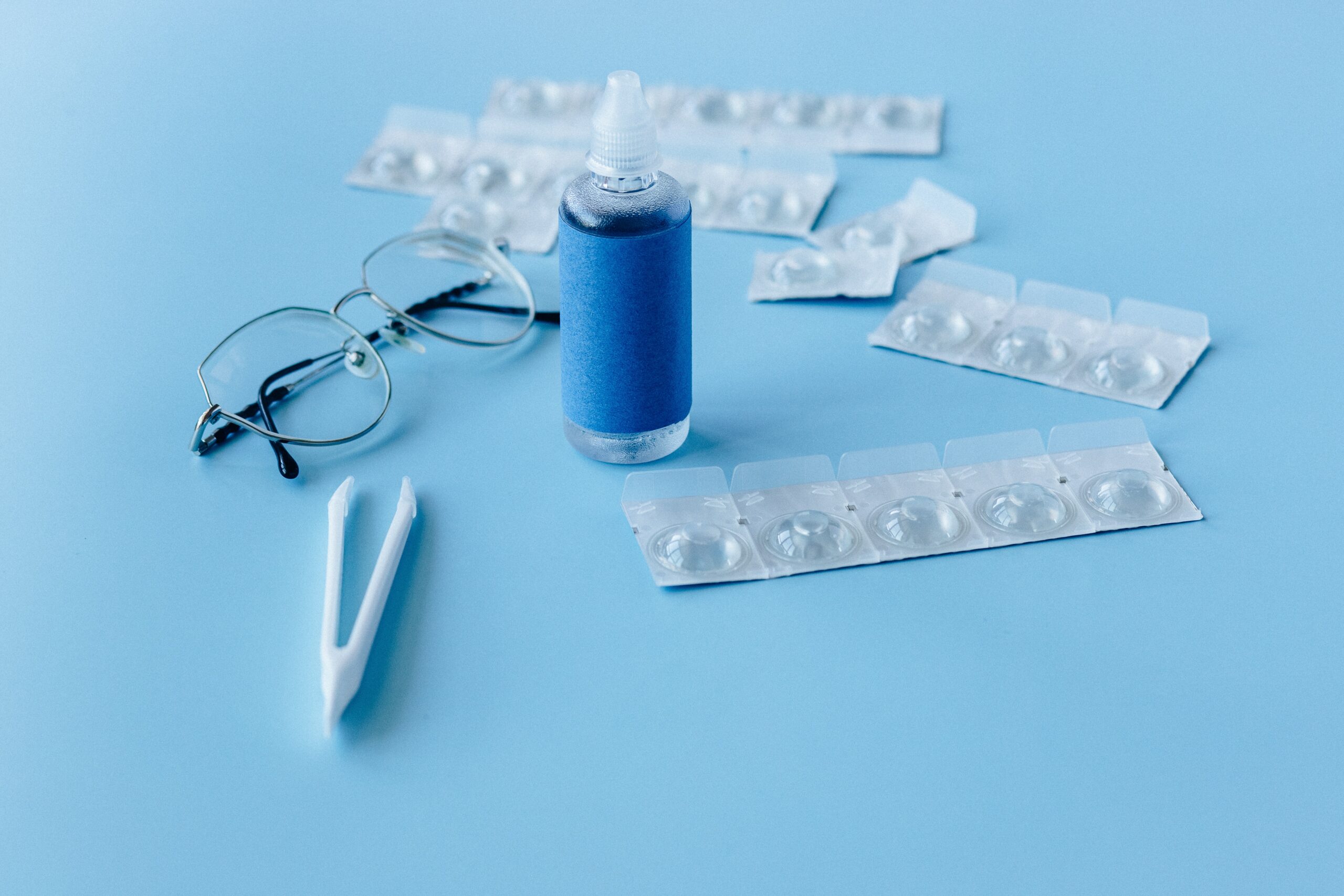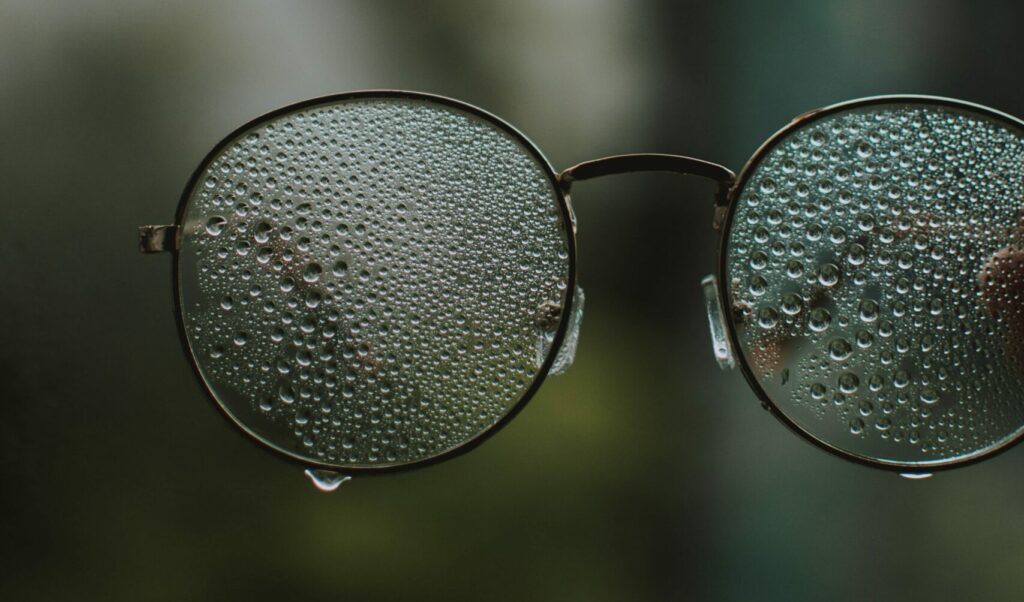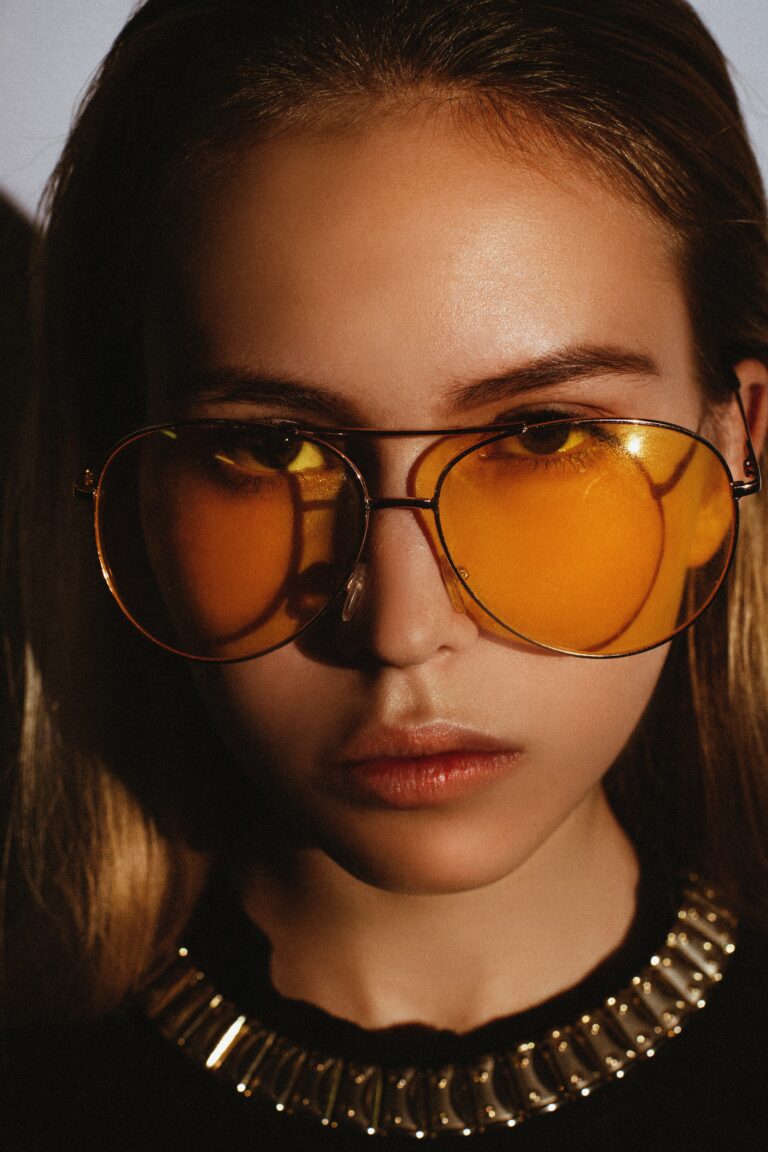Glasses vs. Contacts: Choose Suitable and Comfortable Lenses for Your Eyes
Now, we can find that more and more young people, for a variety of reasons, are choosing not to wear traditional glasses and are instead buying contacts. Yet they are always baffled by their differences and by the hints they should have figured out. So, here we go. Alamode tells you the way to choose suitable glasses and contacts!
Know what you don’t know about glasses
Glasses, also known as eyeglasses or spectacles, are a type of vision aid that consists of lenses mounted in a frame that is placed in front of the eyes to correct refractive errors and improve visual acuity. They are designed to help people who have difficulty seeing clearly at various distances, whether due to nearsightedness, farsightedness, astigmatism, or other vision problems. It is the most common, traditional and secure device of vision aid.
In addition to correcting vision, glasses can also serve as a fashion accessory or provide protection from the sun or other environmental factors. They can be prescribed by an optometrist or ophthalmologist, and require a valid prescription to ensure proper correction and fit.
Know what you don’t know about contacts
Contact lenses, often referred to simply as contacts, are a type of vision aid that are placed directly on the eye’s surface to correct refractive errors and improve visual acuity. They are a popular alternative to glasses for people who prefer a more natural and unobstructed field of vision.
Contact lenses are made from a variety of materials, including soft silicone hydrogels and rigid gas permeable (RGP) plastics. They are designed to conform to the shape of the eye and provide a clear and comfortable view. Contact lenses are available in a range of prescriptions to correct nearsightedness, farsightedness, astigmatism, and presbyopia.
There are different types of contact lenses, including daily disposable, monthly, and extended-wear lenses. They also come in different designs, such as toric lenses for astigmatism and multifocal lenses for presbyopia. Contact lenses require a valid prescription and must be fitted by an optometrist or ophthalmologist to ensure proper fit, comfort, and correction. Proper hygiene and care are essential for maintaining the health of the eyes while wearing contact lenses.
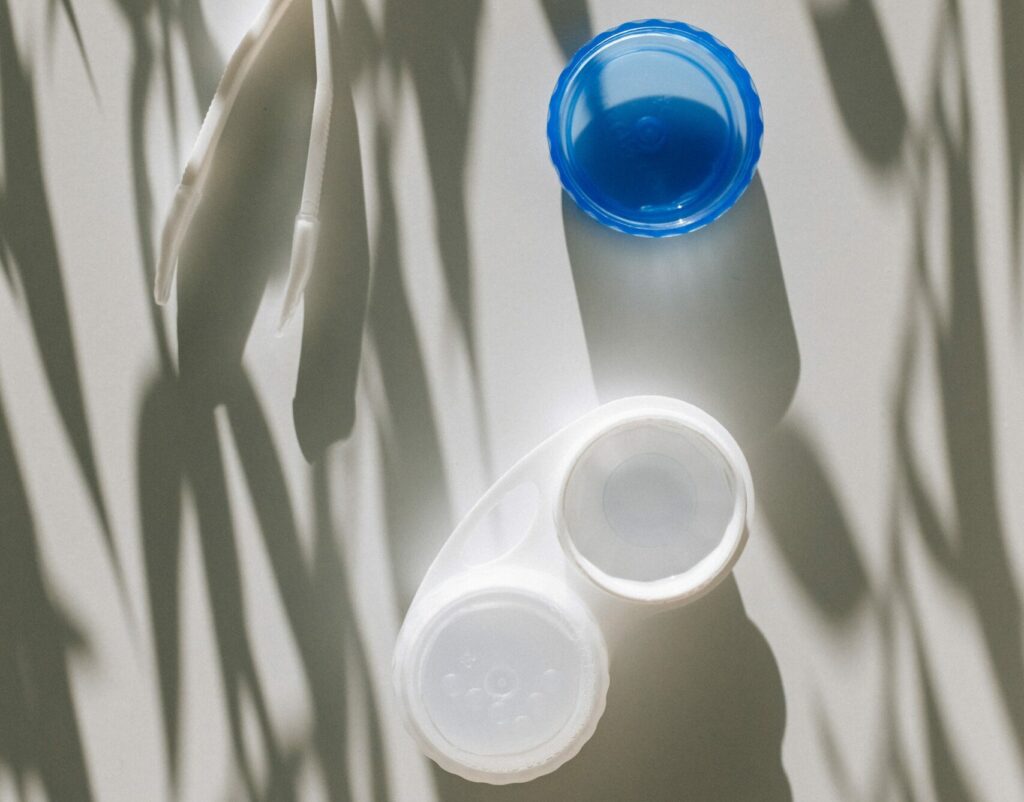
Pros and Cons of Glasses
Pros of Glasses:
n Correct Refractive Errors: Glasses are an effective way to correct vision problems like nearsightedness, farsightedness, and astigmatism.
n Easy to Use: They are simple to use and require little maintenance compared to other vision correction methods.
n Protection: Glasses provide protection from dust, wind, and other environmental factors that can irritate the eyes.
n Fashion Accessory: Glasses can be a stylish accessory and allow for self-expression with a variety of designs and styles.
Cons of Glasses:
n Inconvenience: Glasses can be inconvenient for certain activities like sports, swimming, and other physical activities.
n Fogging: Glasses can fog up in humid or cold conditions, making it difficult to see clearly.
n Discomfort: Glasses may cause discomfort if they do not fit properly or are worn for extended periods.
n Fragility: Glasses are fragile and can break or get scratched, requiring frequent repairs or replacement.
Pros and Cons of Contact Lenses
Pros of Contact Lenses:
n Natural Vision: Contact lenses provide a more undistorted and natural field of vision because, unlike spectacles, they do not result in optical distortions or changes in image size.
n Convenience: For active activities such as swimming or sports, where spectacles can be uncomfortable or easily slide out of place, contact lenses are useful.
n Aesthetics: Contact lenses are a great option for those who do not want to wear spectacles or who want to modify the color of their eyes.
n Comfort: Because contact lenses are so pleasant to wear, wearing them for extended periods of time creates no discomfort.
Cons of Contact Lenses:
n Risk of Infection: Contact lens infections and ocular injury can result from improper handling or inadequate sanitation.
n Cost: Contact lenses can be expensive, particularly if specific prescriptions or styles are needed.
n Dry Eyes: Some individuals who utilize contact lenses for extended amounts of time may experience dry eyes or discomfort.
n Replacement: It’s necessary to change contact lenses on a frequent basis, which can be both costly and inconvenient.
n Maintenance: To guarantee a proper fit, hygiene, and eye correction, contact lenses need to be cleaned and maintained properly.
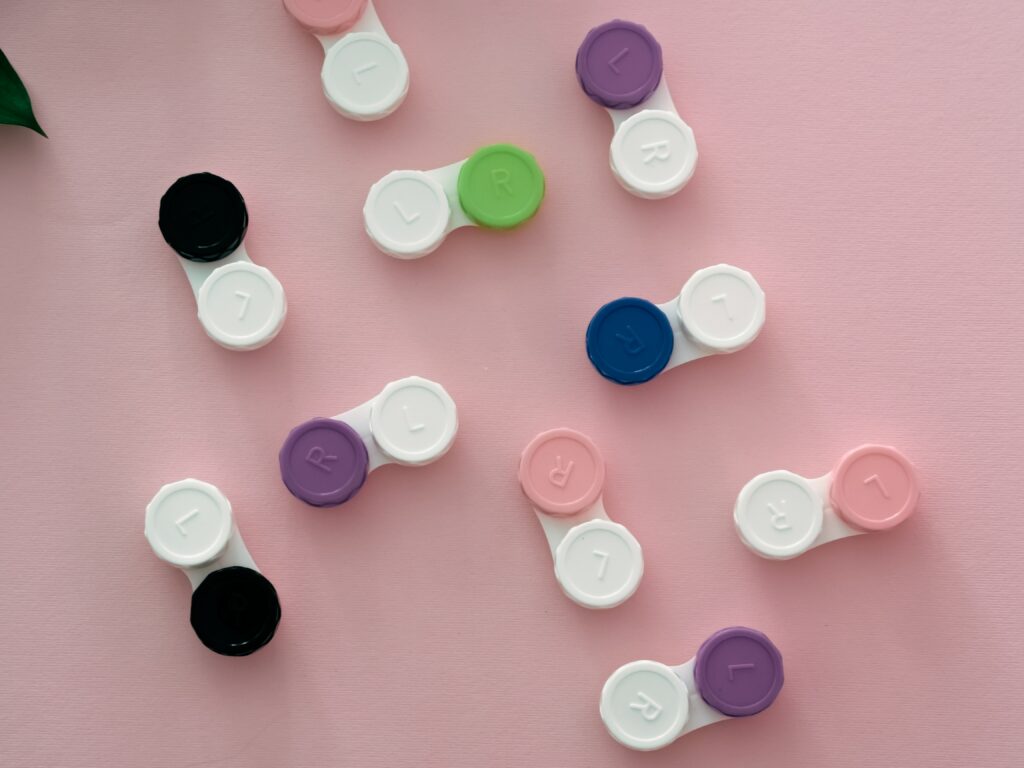
Factors to Consider When Choosing Between Glasses and Contact Lenses
There are a number of things to take into account when deciding whether to get spectacles or contact lenses to fix your vision:
n Lifestyle: Consider your lifestyle and activities when choosing between glasses and contact lenses. If you participate in sports or other physical activities, contact lenses may be a better option. If you spend a lot of time outdoors, glasses may provide better UV protection.
n Convenience: Consider the convenience of wearing glasses vs. contact lenses. Glasses are easy to put on and take off, whereas contact lenses require more effort and care.
n Comfort: Consider your comfort when choosing between glasses and contact lenses. Some people find glasses uncomfortable or heavy, while others may experience discomfort or dryness when wearing contact lenses.
n Vision Needs: Consider your vision needs when choosing between glasses and contact lenses. Glasses are a better option for people with higher prescriptions, while contact lenses can provide better peripheral vision and a wider field of view.
n Cost: Consider the cost of glasses vs. contact lenses, including initial cost, maintenance, and replacement costs. Glasses may be a more cost-effective option, while contact lenses require more frequent replacement and proper cleaning to maintain hygiene and avoid infections.
n Personal Preference: Consider your personal preference when choosing between glasses and contact lenses. Some people prefer the look of glasses, while others prefer the natural feel of contact lenses.
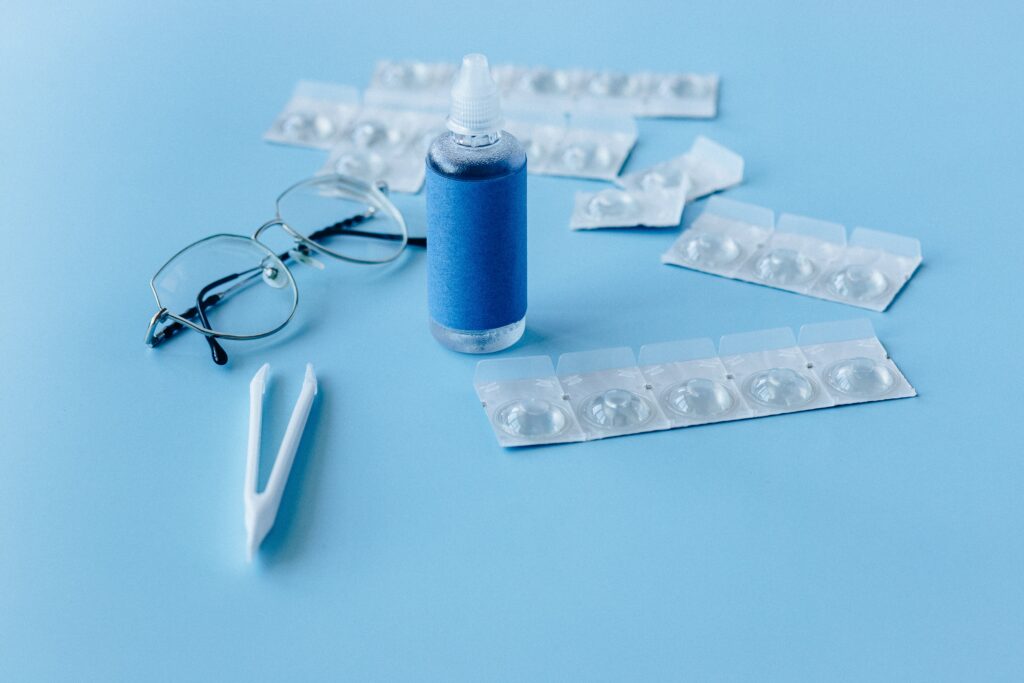
Summary
The decision between glasses and contact lenses relies on individual preferences, lifestyles and vision needs. To choose comfortable, reliable and suitable glasses and contacts. Alamode, gives you the best choice of suitable glasses and contacts.
